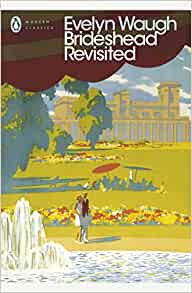The love between Charles and Sebastian might seem familiar. It is the love between the archetypal ‘ordinary man’ and his ‘extraordinary’ counterpart: the love most famously typified by Fitzgerald in The Great Gatsby. In expression, that love can encompass admiration, desire, infatuation, jealousy. In Brideshead Revisited, it exists along the line between wanting to be somebody and wanting to possess them, a tension which I have experienced since I was a teenager. Like Charles, I have found myself drawn in complex ways towards the few extraordinary men I’ve known. I have admired their joie de vivre, desired their proximity, envied their beauty. Sometimes, the temptation to peer into and be part of their lives has been irresistible. It is a draw towards interesting and attractive people who are able to show us a life from which we might otherwise be excluded. It’s a rabbit hole; sometimes, a fatal one. But it’s a rabbit hole from which Charles Ryder ultimately escapes.
Brideshead taught me about the sadness of the extraordinary man, as did Gatsby. Even in its rampant sentimentality, we see the inherent sadness at the core of glamour, as in the centre of a diamond where it is coldest and hardest. I have known Sebastians and watched them succumb to their own extraordinary nature. In Charles Ryder, the ordinary man, I find a painful acceptance of my difference. While Charles is an adult, able to reflect both fondly and sadly on his desires, Sebastian remains a young man frozen in his hopeless, exceptional position. Brideshead Revisited achieves this distinction without letting go of the idealism that drew Charles to Sebastian, and this is where sentimentality meets reality. Similarly, while my own beautiful and broken men slip into rabbit holes of their own, my love for them and the memory of my love continues.


No comments:
Post a Comment